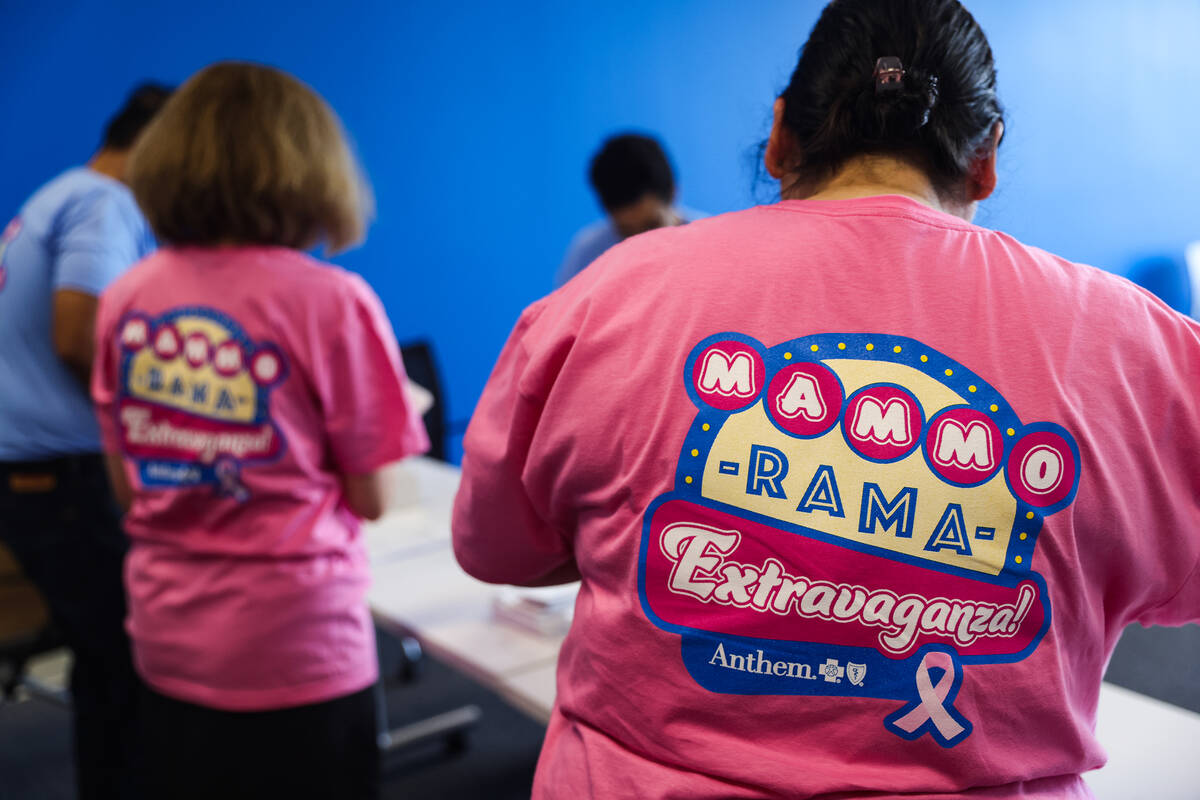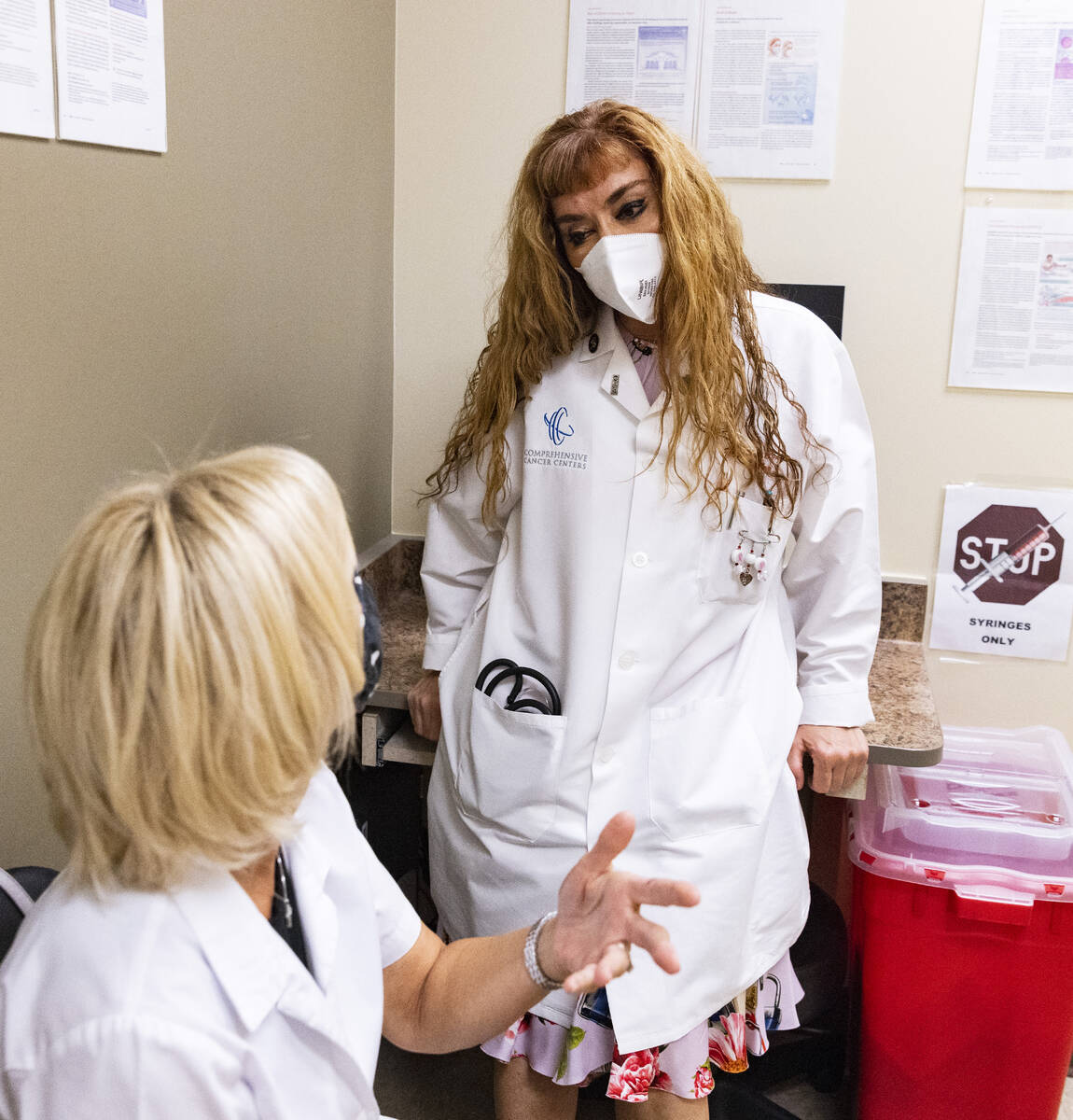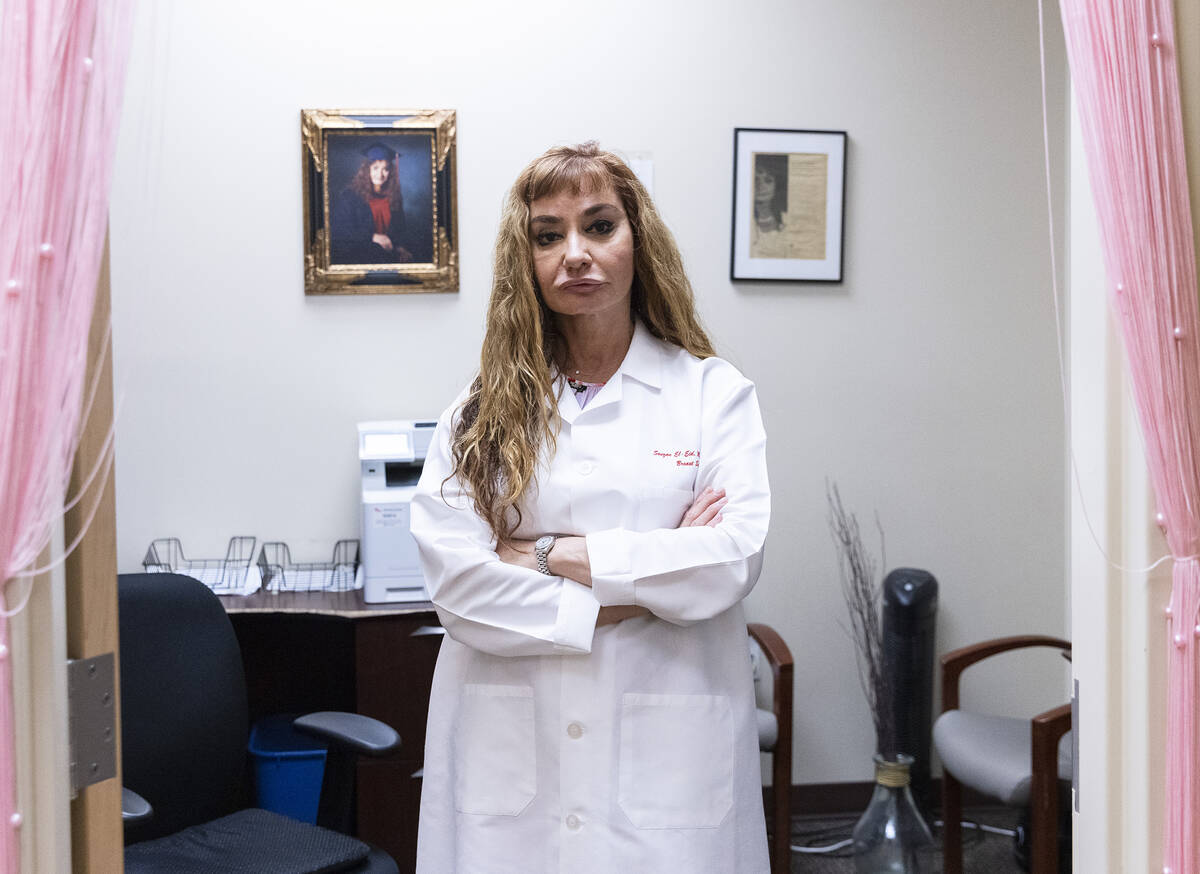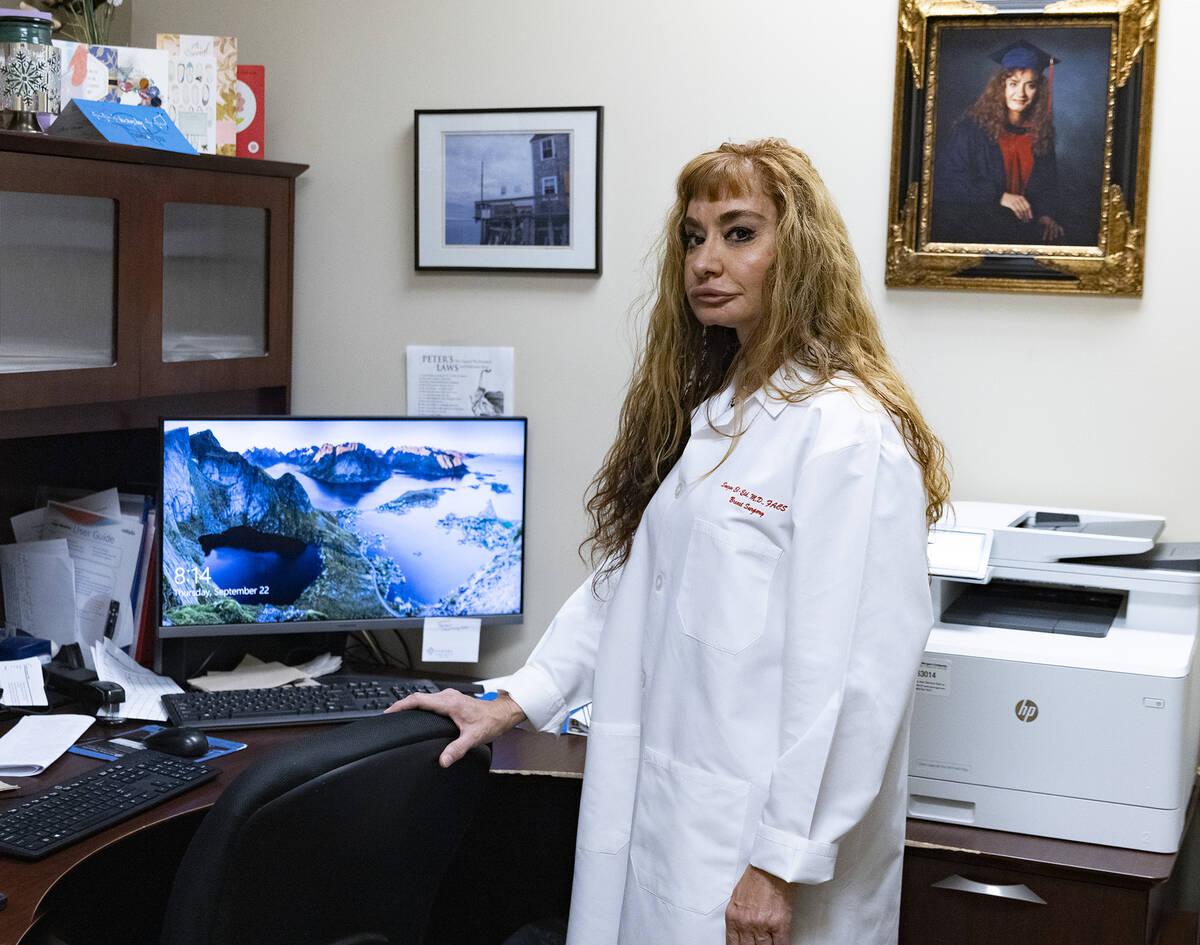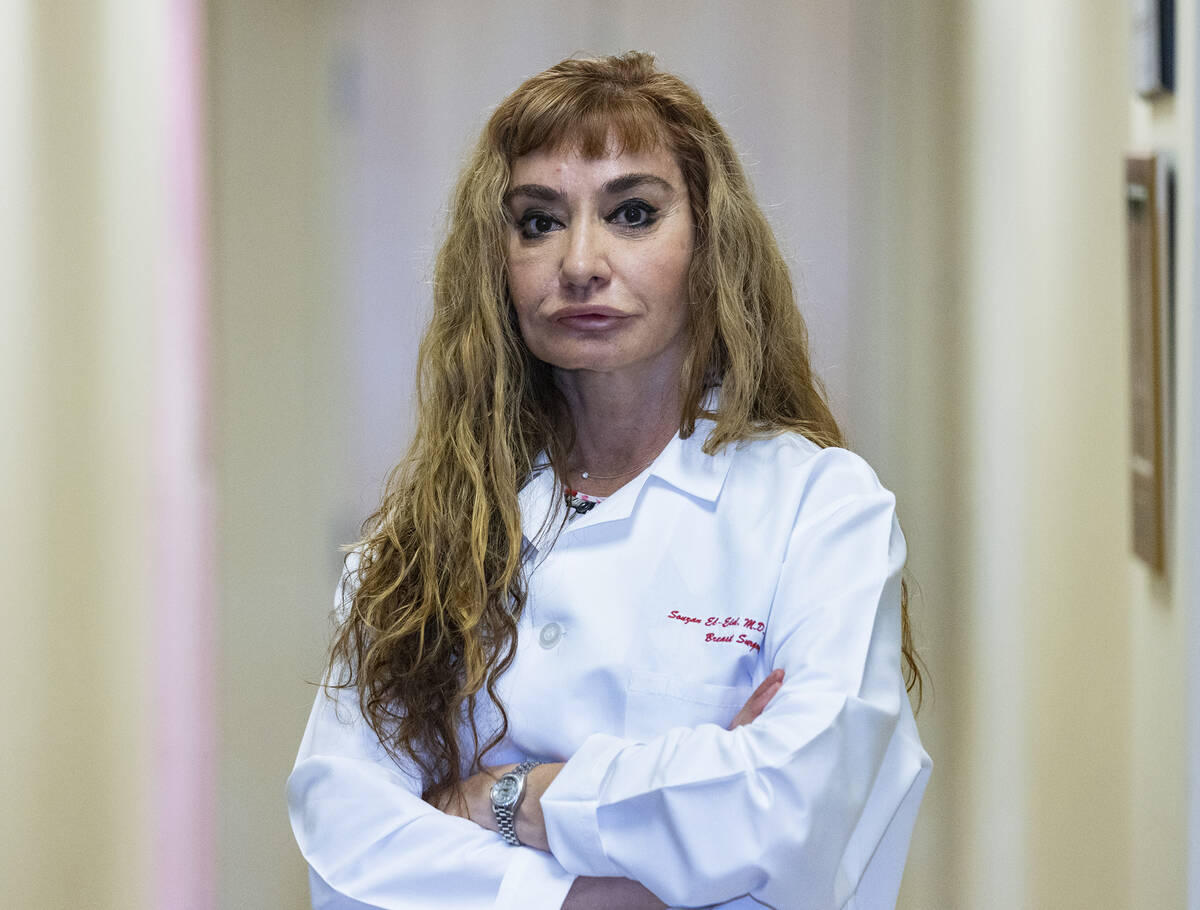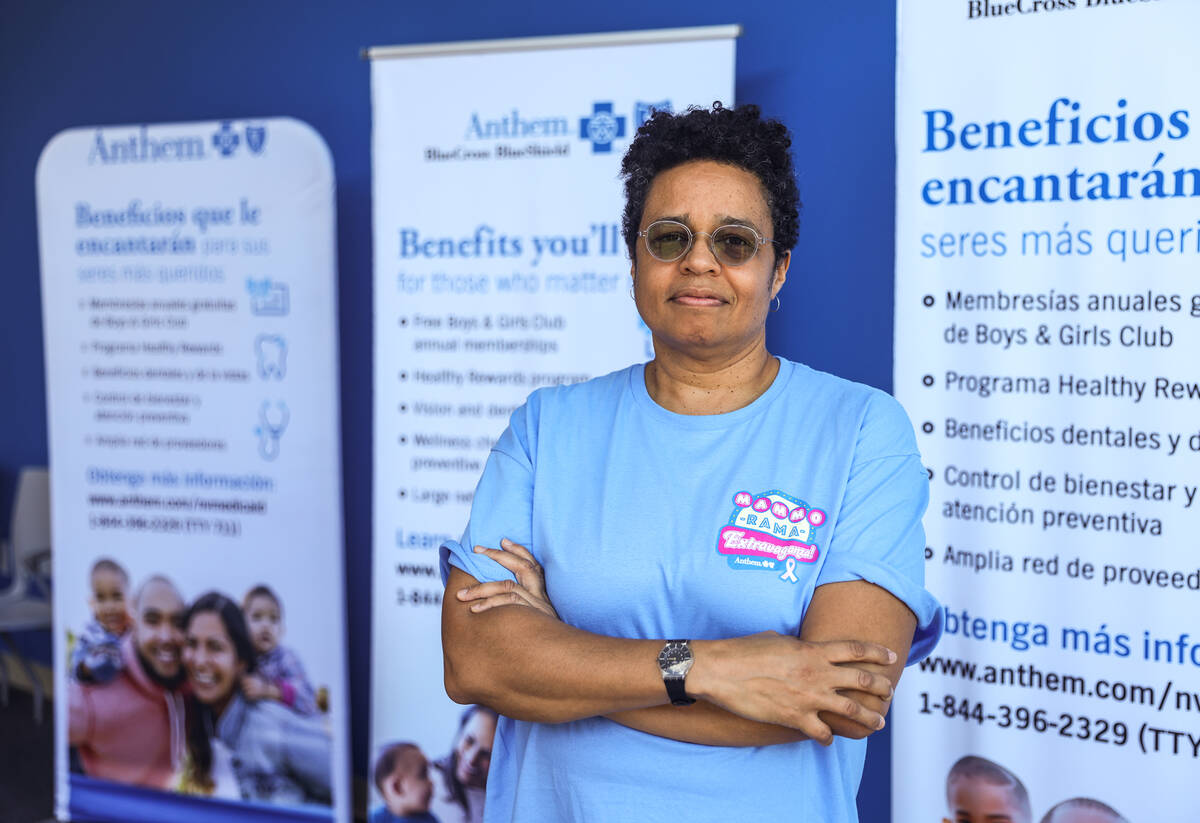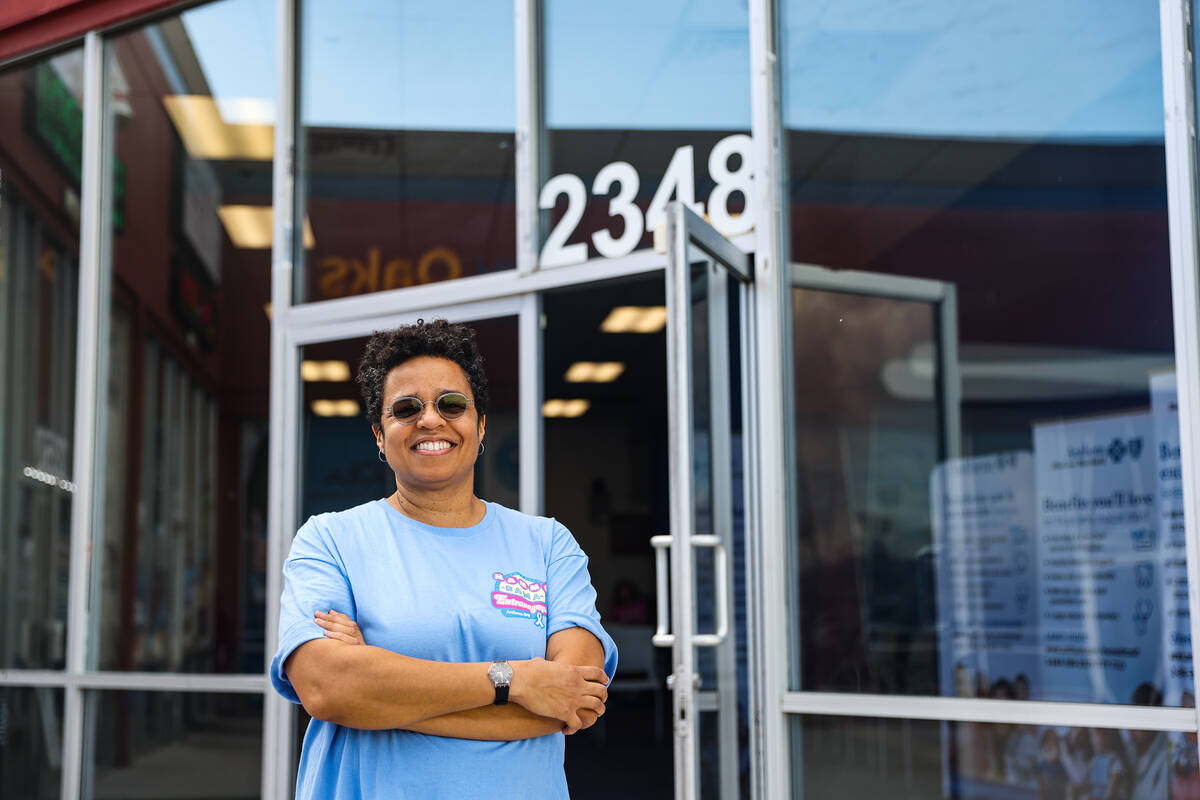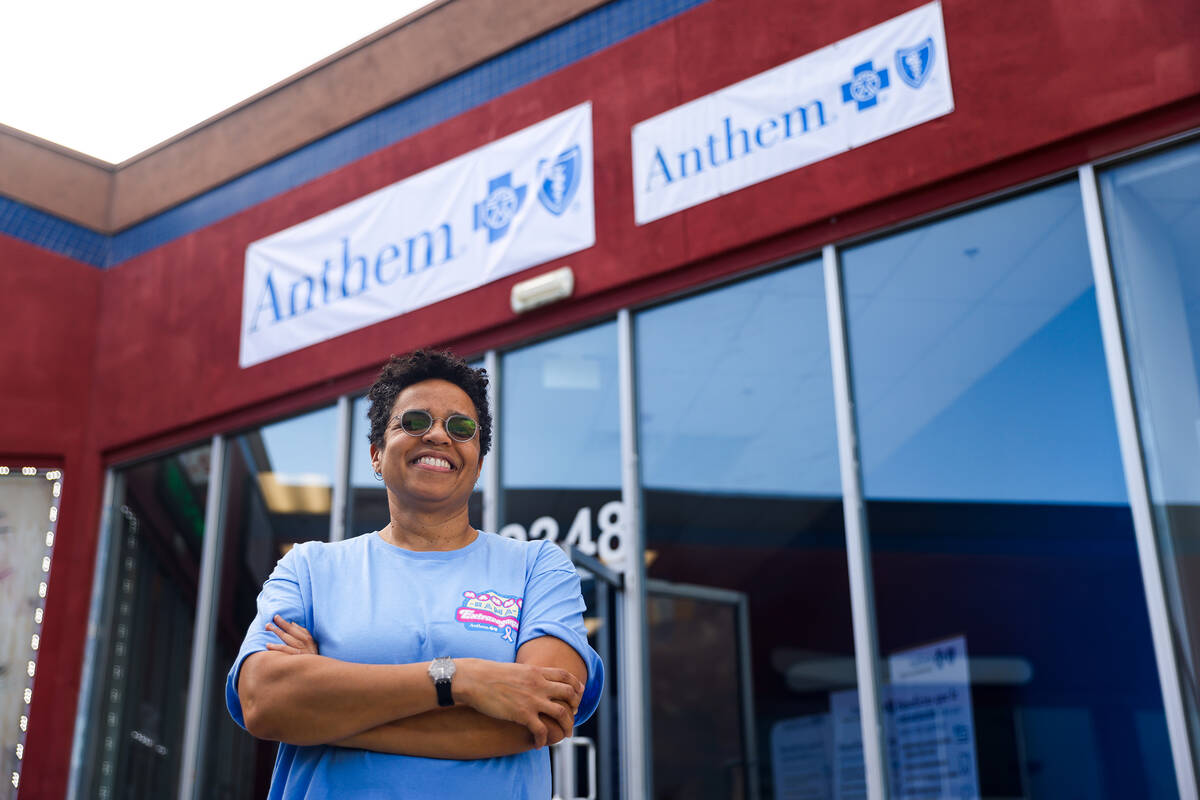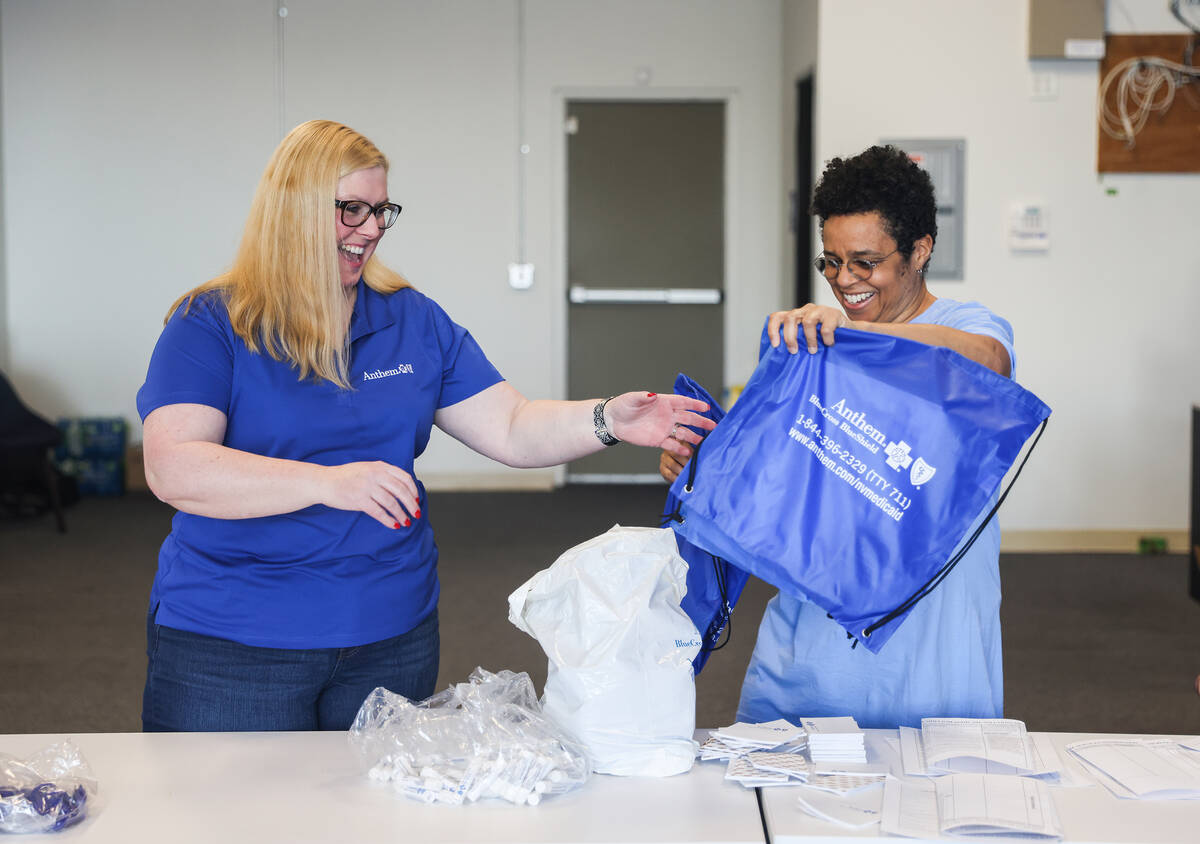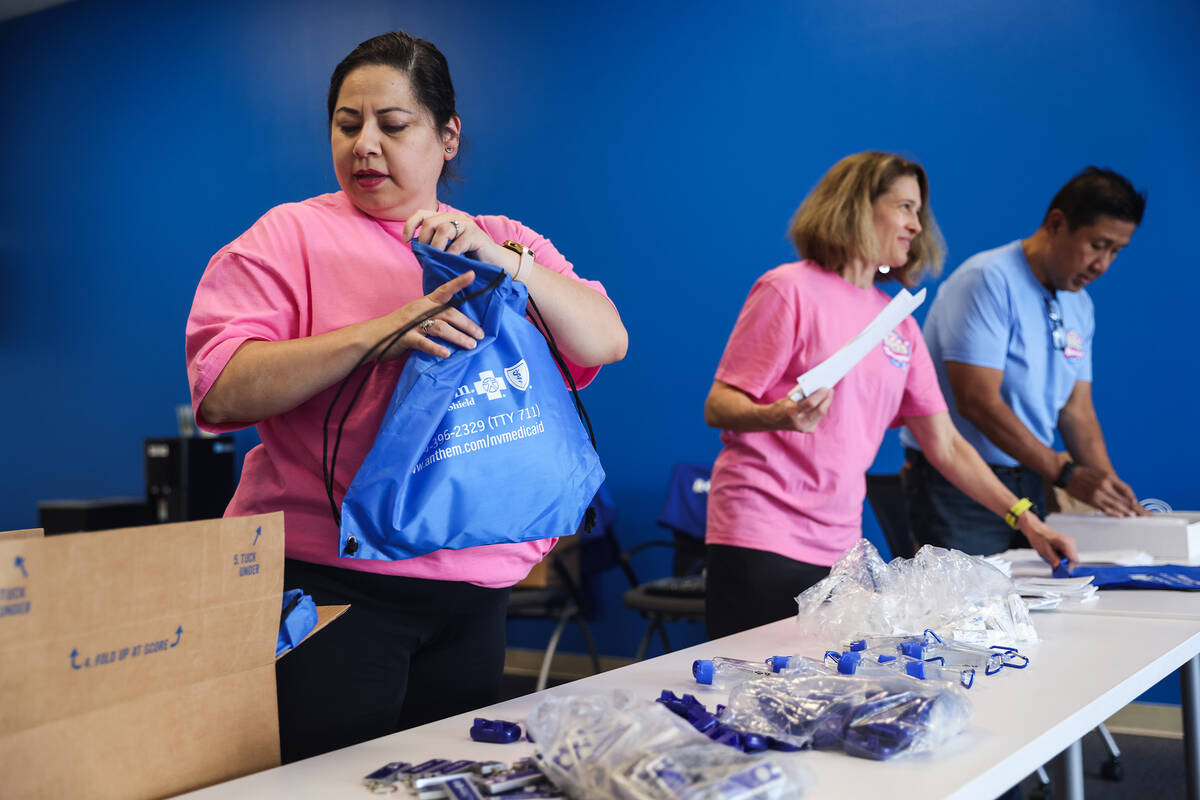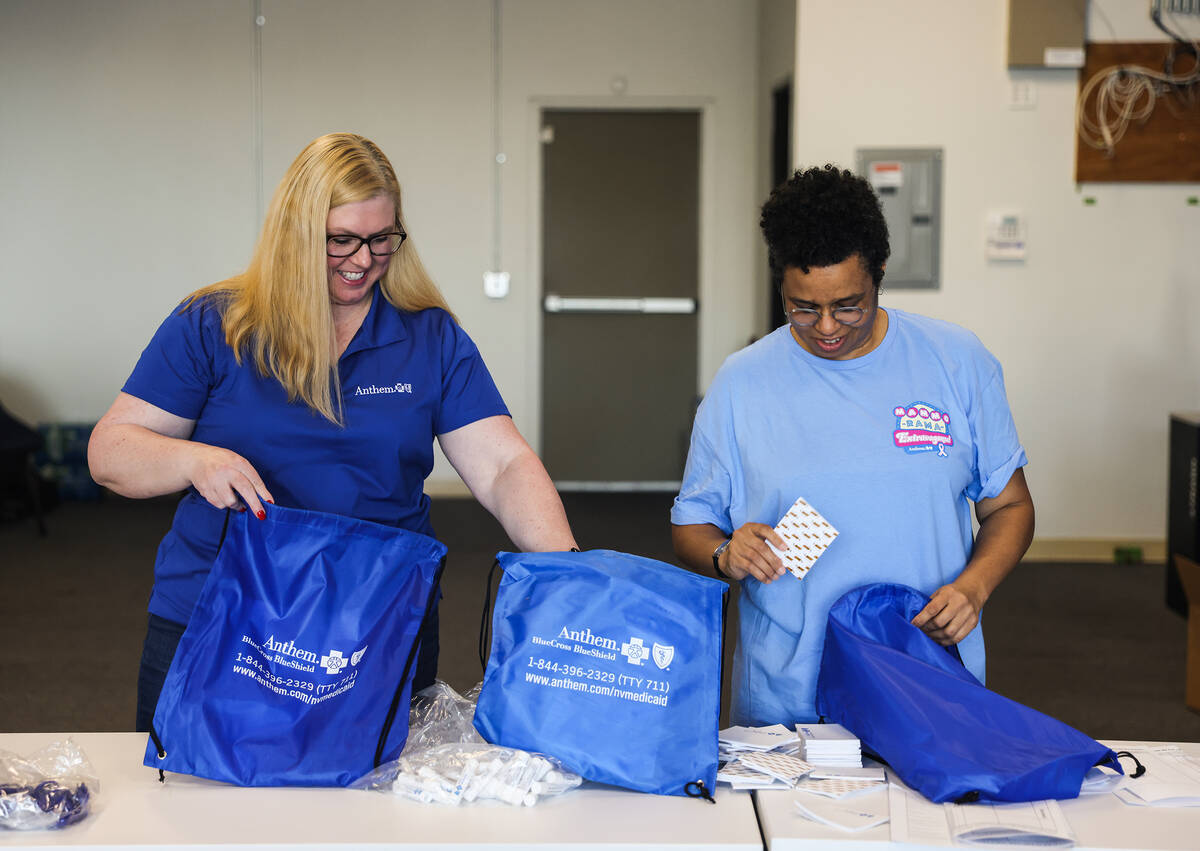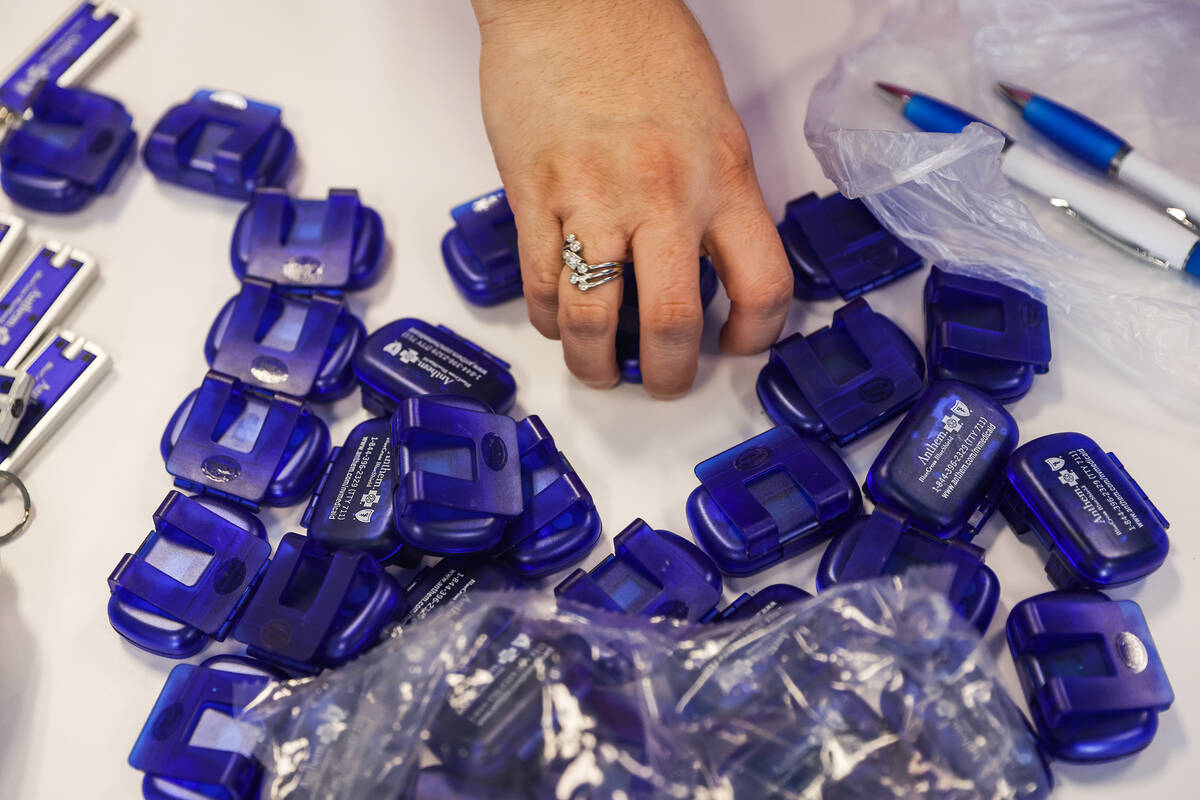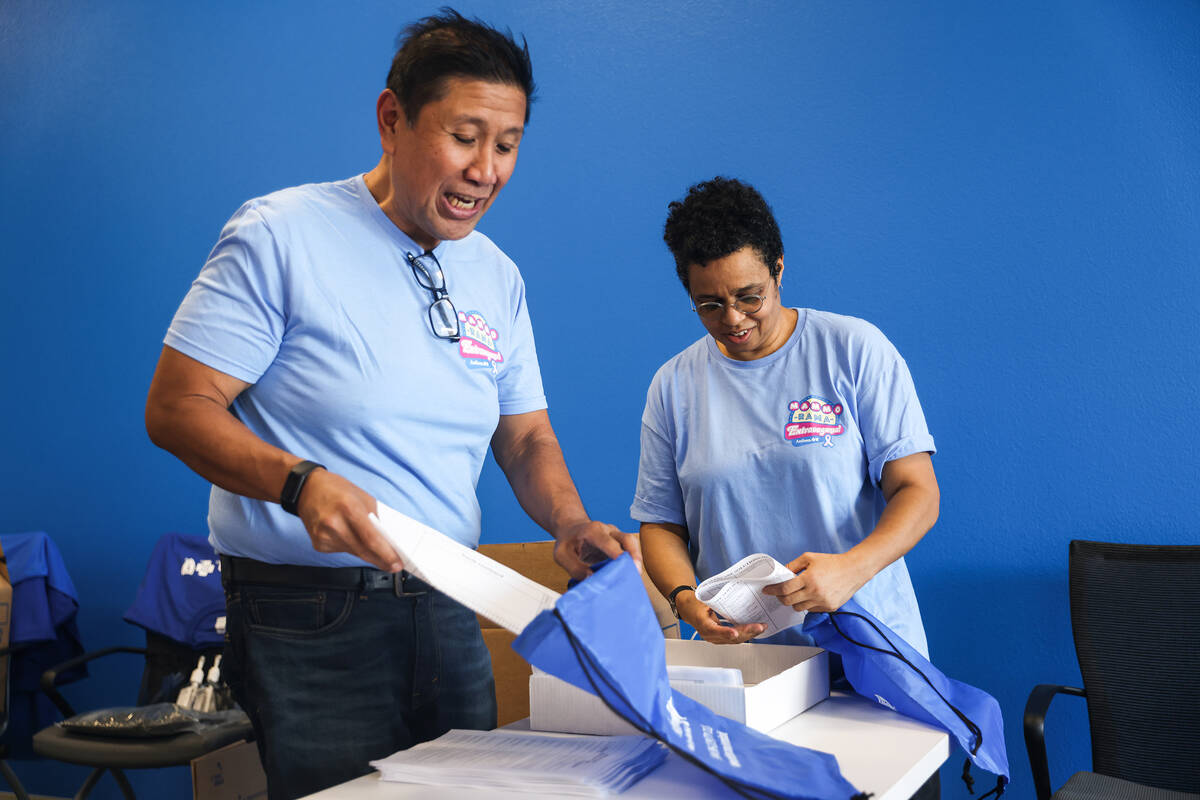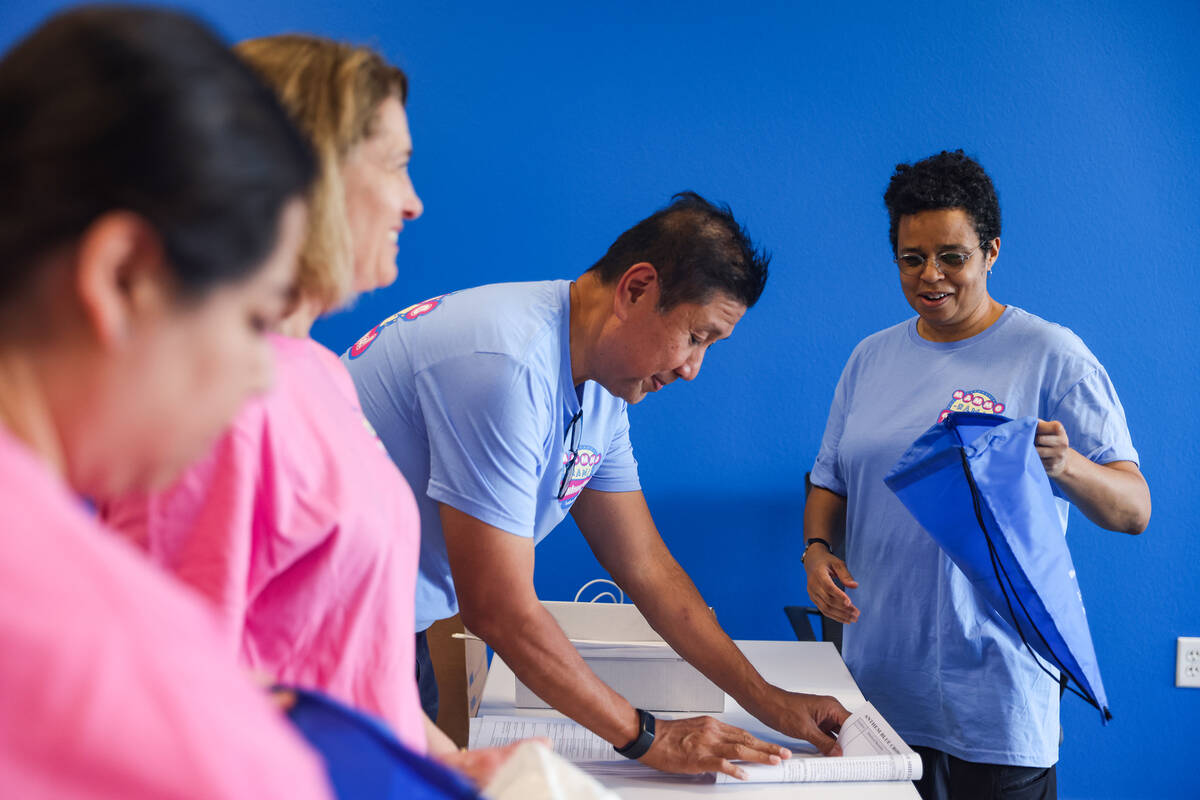Questions, fears linger about COVID-related mammogram delays
Dr. Lisa Thompson understands the reluctance many women felt about having their regularly scheduled breast cancer screenings during the COVID-19 pandemic.
She was one of them.
Thompson, plan performance medical director for Anthem Nevada Medicaid, put off her own mammogram even after she was once again able to be screened.
“I delayed until I was able to get a vaccine” in early 2021, she said. “It made me nervous how much time I had (waited). I just didn’t feel comfortable doing it before that.
“As a physician, I’m bad at taking care of myself. Luckily, my primary care physician stayed on me, and I did (get screened).”
Now that the pandemic has eased, women largely have resumed their breast cancer screening routines. But an unsettling post-COVID question remains: Have screening delays during the pandemic affected the lifesaving benefits — early detection, prompt treatment and, ultimately, better survival rates — that regular mammograms and screenings can offer?
“I don’t think anybody knows the answer,” said Dr. Souzan El-Eid, medical director of the Breast Care Center at Summerlin Hospital. “We really don’t know. It’s too soon to show the impact.”
Studies are being done, and “the answer is evolving,” Thompson said, but “it will take time for us to see the implications of that.”
‘Fear and uncertainty’
Each October, the observance of Breast Cancer Awareness Month helps to focus attention on the importance of regular screening for breast cancer, which is “the most common cancer in women after skin cancer,” El-Eid said.
Breast cancers can be discovered after symptoms appear. But regular mammograms — low-dose X-rays that can reveal potentially suspicious changes in the breast before symptoms appear — can help detect cancers even earlier, allowing treatment to begin earlier and increasing the chances of survival.
“Cancers behave differently,” El-Eid said. “If it’s an aggressive cancer, waiting a few months may be a huge mistake. When you find cancer, you want to take care of it right away, not sit on it.” In early 2020, patients missed screening for “a few months,” she added.
“Because of the lockdown, all screening stopped,” El-Eid said, as medical facilities suspended outpatient and elective medical procedures so that resources could be reserved for COVID patients.
Then, even when mammograms again became available, some patients “stayed away because of fear and uncertainty,” El-Eid said.
According to the American Cancer Society, the number of women in the United States who reported having breast screenings in the past year dropped by 2 million, or 6 percent, in 2020 compared with 2018. The same study said that breast and cervical cancer screenings in March and April 2020 dropped by nearly 80 percent.
According to the study’s senior author, while many patients caught up on screenings later in 2020, the pandemic kept screenings down over the course of the year.
The American Cancer Society currently recommends that women of average risk for breast cancer begin receiving yearly mammograms starting by age 45, but some other organizations recommend screening at age 40. The decision, El-Eid and Thompson agreed, should be made by women in consultation with their physicians.
But persuading women to carve out time for annual mammograms can be difficult even without a pandemic. Thompson notes that a lack of insurance or transportation, busy schedules, family and child care responsibilities, work and house-running duties — which often fall largely to wives and moms — all can create practical obstacles to undergoing annual mammograms.
Against that already dissuasive backdrop, the COVID pandemic created even more “huge barriers” for women, Thompson said.
Studying backlog’s effects
The potential effects of the COVID-induced slowdown and the backlog of patient care that followed now are being studied. According to the U.S. Centers for Disease Control and Prevention — which noted an 87 percent drop in breast cancer screenings during April 2020 — prolonged COVID-related screening delays “may lead to delayed diagnoses, poor health consequences and an increase in cancer disparities among women already experiencing health inequities.”
The question now, El-Eid said, is “how much did that lead to delayed diagnosis and delayed treatment?” and, most importantly, “did it affect the prognosis of these people?”
“I don’t know that there has been any really accurate (research) about that,” said Thompson, although she has heard anecdotally about patients who had “more advanced diagnoses or a worse prognosis once they did resume their care.”
What’s vital to remember, El-Eid said, is that an annual mammogram is “still the gold standard” for detecting cancer.
And that might make this year’s observance of Breast Cancer Awareness Month, with its message of encouraging women to have regular mammograms, particularly resonant.
Sometimes, pandemic or not, Thompson said, “I think people forget how important it is to get this care.”
Mammo-Rama Extravaganza
Mobile mammography screenings via Nevada Health Centers' Mammovan will be offered Oct. 14 and 15 during the Mammo-Rama Extravaganza and Family Health Fair, a two-day event focusing on women's breast health.
The event, which runs from 10 a.m. to 2 p.m. at Pearson Community Center, 1625 W. Carey Ave., North Las Vegas, is designed primarily to serve women of color who live in parts of the community where only limited access to health care is available. However, mammograms will be available to all women, regardless of economic status. Payment methods include Medicaid, Medicare and insurance, or a sliding fee scale.
Organizers note that some women may be eligible for no-cost screenings. Patients should bring insurance information and a government-issued ID with proof of Nevada residency. Appointments are recommended for mammograms. To make an appointment, call 877-581-6266 and dial option 1 or visit Nevadahealthcenters.org/mammography. Walk-ups will be accommodated as availability permits.
On Saturday, in addition to mammograms, a variety of other services will be available, including childhood immunizations, flu and HPV vaccinations, vision screenings, dental services, blood pressure screening, diabetic resources, and information about cancer screening and food insecurity support. Fresh food boxes/bags will be distributed to participants while supplies last on Friday and Saturday.
The event is hosted by Anthem Blue Cross and Blue Shield of Nevada in partnership with Nevada Health Centers.



